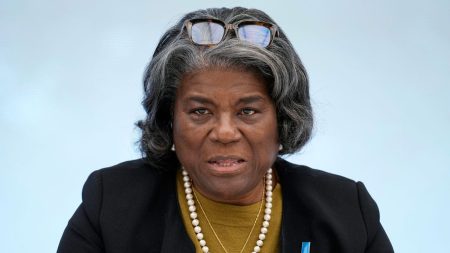Croatia’s Constitutional Court has ruled that President Zoran Milanović is barred from becoming prime minister if his party, the Social Democratic Party, manages to secure a majority in the recent parliamentary election. Despite finishing second in the election, Milanović had announced his plans to run for prime minister, ignoring a warning from the Constitutional Court that he had to resign first. The court’s ruling stated that Milanović’s actions prevented him from holding the position of prime minister in the future.
Milanović and his party have criticized the Constitutional Court’s decision, arguing that the will of the people should determine the next prime minister, not the courts. They have called on other opposition groups to help form a new government without the governing center-right Croatian Democratic Union. The ongoing dispute between Milanović and the current Prime Minister Andrej Plenković has overshadowed the election, which is also seen as a test ahead of upcoming European Parliament elections.
The results of the parliamentary election showed that the HDZ won the most seats with 61, while the SDP received 42. The far-right Homeland Movement emerged as a potential kingmaker with 14 seats, further complicating the formation of a coalition government. Despite the court’s ruling that Milanović cannot become prime minister, even if he were to resign as president, opposition politicians have raised concerns about the court’s impartiality and accused it of being controlled by the ruling conservatives.
Croatia, which became an EU member in 2013, has seen tensions rise between the two top political figures and their respective parties. Milanović has accused Plenković of corruption and criticized EU policies regarding the conflict in Ukraine. If Milanović were to form a government, it could potentially lead to a shift towards stronger pro-Russia influence in the country, similar to Hungary and Slovakia. The outcome of the election and the formation of the new government will have implications for Croatia’s relationship with the EU and its position in the region.
The ruling by the Constitutional Court has raised concerns about the independence and neutrality of Croatia’s judicial system, with opposition politicians claiming that the court is influenced by the ruling conservatives. Former Prime Minister Jadranka Kosor and leftist politician Dalija Orešković have criticized the court’s decisions, alleging that it goes against the constitution and is one of many institutions under the control of the ruling party. The upcoming presidential election in Croatia later this year will further test the country’s political landscape and the balance of power between different factions.















